News

Vietnam’s online education and booking platform Edu2Review has raised an undisclosed sum of funding from Singapore’s Nest Tech venture capital fund. Austin Carter, co-founder and chief financial officer of Edu2Review confirmed the transaction with DEALSTREETASIA, adding that this investment has raised its valuation to seven-digit USD. Ho Hoan and Austin – founders of Edu2Review Edu2Review […]
July 28, 2022
The health and fitness platform from Myanmar Flexible Pass has completed its fundraising round worth of six-digit dollar closed by Nest Tech, a VC firm that actively backs startups in Myanmar, Vietnam, and Singapore. Participating in the round were Seed Myanmar and Yangon Capital Partners (YCP), which is the investment arm of the financial advisory […]
July 28, 2022
Mote Poh is a localised version of employee benefits programmes that leading companies in Singapore, the US and other countries have been using for decades. (L-R) EME Myanmar’s Investment Manager Matthew Viner, and Mote Poh CEO Loring Harkness. EME Myanmar, a recently-launched early-stage VC fund, has led a six-digit seed round in Mote Poh, a […]
July 28, 2022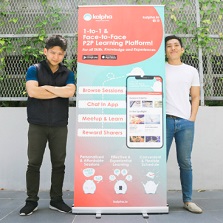
Singapore-based edtech startup Kalpha has raised a six-figure amount in a seed funding round from venture capital fund Nest Tech. The Kalpha app – an edtech startup that focuses on sharing skills, experiences and knowledge, has received a “six-figure sum” in funding from Nest Tech, a VC fund focusing on seed-stage technology startups. The investment will be […]
July 28, 2022
Venture capital fund Nest Tech has invested an undisclosed sum in Singapore food and beverage technology startup, Waitrr, in its pre-series A round. Nest Tech, which invests in seed-stage technology startups, will have a minority stake in Waitrr. It will support the company’s expansion into South-east Asia, particularly Vietnam and Myanmar, where the fund has a […]
July 28, 2022
Yangon Capital Partners (YCP), Seed Myanmar, and Nest Tech come back as investors for the Yangon-operated second funding round. Flexible Pass, Myanmar-based health and fitness app, announces that it has raised a six-digit Pre-Series A funding. Without revealing the total funding raised, the second funding round was raised from three existing investors from the company’s […]
July 28, 2022
TrophyRoom secures another seed funding for its third round from its existing investors. TrophyRoom, Singaporean mobile football game, announces that it has received the third installment of its seed round from its existing investors. In its previous round, the company behind the game said that it focussed on building a minimum viable product, while this […]
July 28, 2022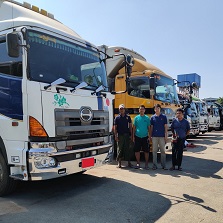
KoneSi, a Yangon-based on-demand trucking start-up, has received a six-digit sum investment for nationwide expansion of Trust Venture Partners, a local financial advisory firm, and Nest Tech, a Vietnam-based venture capital company. This is the second round of investment for KoneSi after it initially received pre-seed funding from Phandeeyar in 2017, according to its release […]
July 28, 2022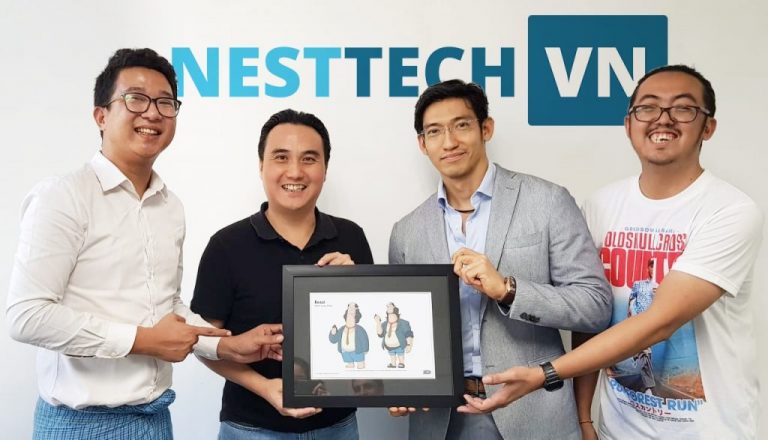
Joosk Studio, a Myanmar-based digital animation company, announced that it has raised a six-figure investment in a funding round led by Vietnam-based venture capital firm Nest Tech VN. Existing investor Emerging Markets Entrepreneurs (EME) also participated in the round. Nest Tech invests in Joosk studio (Photo credit: EME) Founded in 2015, Joosk runs a Facebook […]
July 28, 2022
Yangon Broom, a Myanmar-based company, today announced that it has raised an undisclosed third funding round led by Yangon Capital Partners, the investment arm of a financial advisory company Trust Venture Partners. Other backers include existing investors such as Emerging Markets Entrepreneurs (EME) and Nest Tech VN, who had previously invested a five-figure funding round […]
July 28, 2022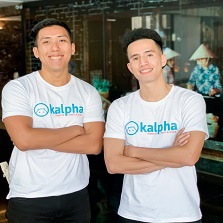
Launched in 2019 in Singapore, Kalpha is a mobile application allowing individuals to connect and share skills, experiences and knowledge on a one-to-one basis. In 2019, the education startup raised a 6-figure seed round investment with Vietnam-based VC firm Nest Tech, becoming the leading peer-to-peer platform in Singapore and nabbing the “People’s Choice 2019” prize […]
July 28, 2022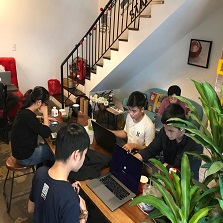
Our company would like to announce the expansion of its corporate office from July 1, 2020. In order to meet the needs of expanding the scale of operations as well as increasing the number of employees, our company will expand an office in District 1, Ho Chi Minh City. At the new office, we will […]
July 28, 2022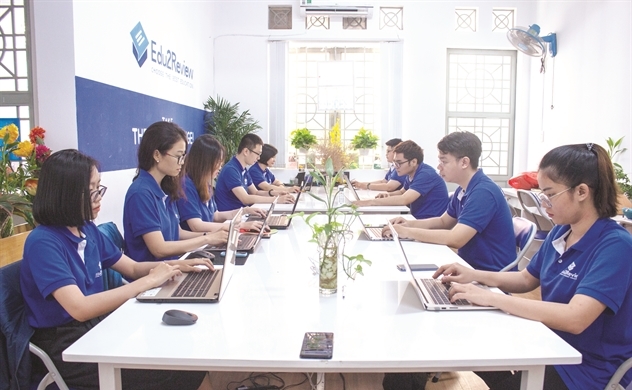
Vietnamese parents are spending 47% of their income on their children’s education, according to TTC Edu’s statistics, while according to the Institute of Educational Research, 75% of parents admit that they are sending their children tutoring. The general education sector is also forecast to grow impressively, reaching $ 89 billion by 2026. These figures show […]
July 28, 2022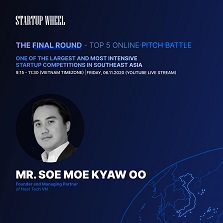
STARTUP WHEEL – One of the largest and most intensive startup competitions in Southeast Asia is going to its final stage. Started in 2013, Startup Wheel is designed as a 6-month accelerated program running from March to August annually. The competition is also the biggest and longest-running competition for startups in Vietnam. Since 2018, Startup […]
July 28, 2022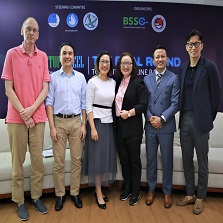
The virtual event was successful. Congratulations Top 5 of Startup Wheel International Track on amazing performance today. Let’s look forward to the winner announcement on 13th November 2020 in the Ceremony Awards Event of Startup Wheel 2020. Final Round – International Track of Startup Wheel 2020 Top 5 International Track – Startup Wheel 2020 is […]
July 28, 2022
ORIGIN Innovation Awards is APAC’s esteemed accolade for tech innovation which aims to provide recognition to companies that have exemplified the spirit of innovation and entrepreneurship in the running of their businesses. The inaugural ORIGIN Innovation Awards started in 2020 as an initiative by TechNode Global with a goal to build a dynamic community in […]
July 28, 2022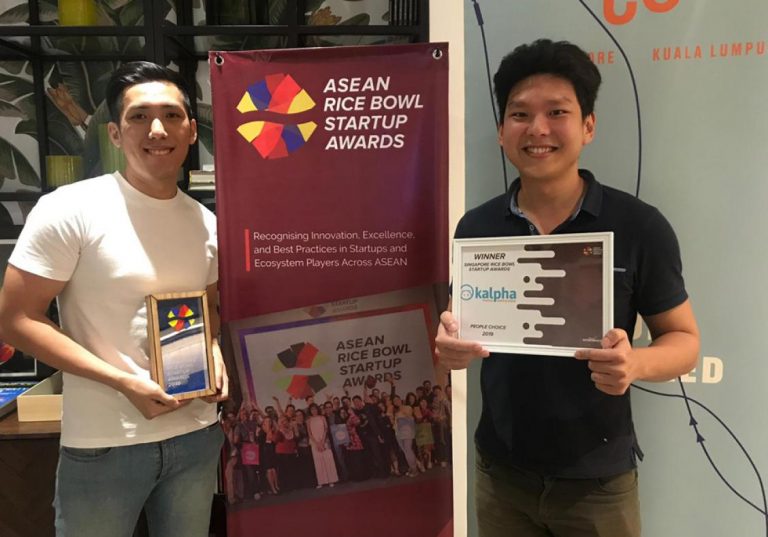
VIETNAM is drawing record numbers of Singapore businesses as companies continue to look for expansion opportunities despite Covid-19. Enterprise Singapore (ESG) said it has supported more than double the number of internationalization projects for enterprises looking to expand into Vietnam since 2018. From January to October 2020 alone, ESG supported 56.9 per cent more projects […]
July 28, 2022
Singapore’s Ngee Ann Polytechnic (NP) and the United Overseas Bank (UOB) announced their plans to jointly launch a campus startup incubator and learning lab to drive student entrepreneurship and encourage ecosystem partnerships. Hangout@UOB has areas where students can sit and share ideas (ST Photo: Jason Quah) AGILE, which stands for Accelerating Growth in Innovation, Learning, […]
July 28, 2022
Kalpha, a Singaporean edutech startup, announced today it has closed a six-figure seed extension round, led by existing seed-stage investor Nest Tech, with participation from several undisclosed angel investors. (From left): Kalpha co-founder Jaden Teo, Nest Tech VN founder and managing partner Soe Moe Kyaw Oo, and Kalpha Vietnam chief marketing officer and co-founder Tri […]
July 28, 2022
Fantasy sports app TrophyRoom recently closed a six figure bridge round and is taking steady aim at the exploding Indian fantasy sports market later this year. Launched as a free-to-play game in September last year, the team at TrophyRoom has been busy gathering data, listening to user feedback and pushing out new features, all with […]
July 28, 2022
Covid-19 is considered as an agent to change the position of ed-tech (education technology), fostering the process of the technological nation of the global education industry. However, foreign startups still dominate the game in the Vietnamese market. Vietnam’s EdTech landscape 2020 (source: nguyentrihien.com) Over 1,200 investment transactions in the ed-tech domain with a value of […]
July 28, 2022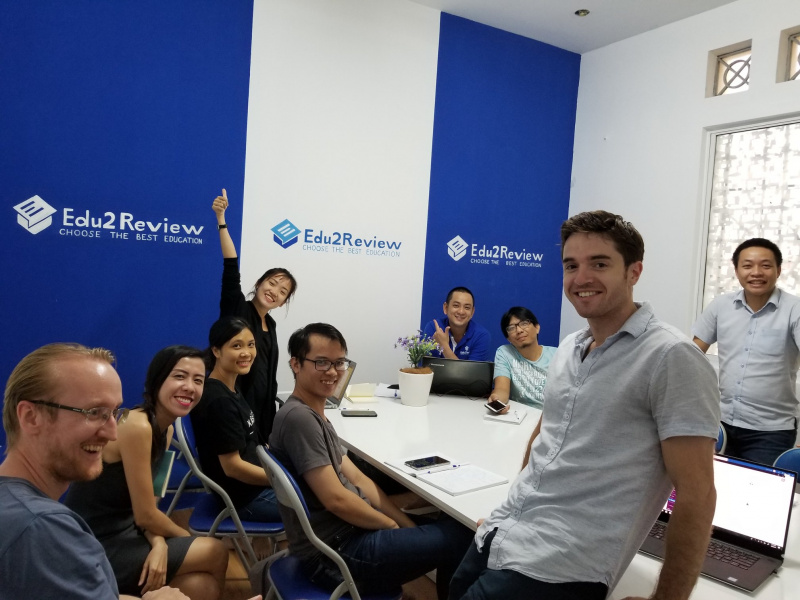
Despite Topica’s setbacks, Vietnam edtech is on the radar of some regional investors. Topica, Vietnam’s leading education tech startup, has been a hard act to follow, even for itself. In a 2018 interview with Tech in Asia, the founder and then-CEO Tuan Pham was riding high. At the time, Topica was fresh off its announcement […]
July 28, 2022
Ho Chi Minh City has been in lockdown for more than 100 days and all Nest Tech’s employees have had to work from home for the same amount of time. Although working from home, all our employees and managers are still connected and work closely with each other through connected applications. We know that working […]
July 28, 2022